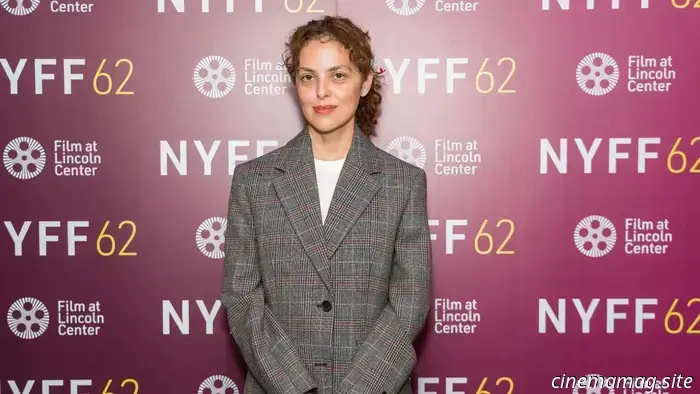
“Nobody Can See It In Georgia”: Dea Kulumbegashvili, director of April, discusses state suppression and the support from Luca Guadagnino.
Note: This review was initially published as part of our 2024 Filmfest Hamburg coverage. "April" will be released in theaters on April 25.
Georgian writer-director Dea Kulumbegashvili has garnered considerable acclaim in the film industry with just two feature films. Her remarkable debut, "Beginning," earned a Cannes label at the festival's canceled pandemic edition and claimed four out of seven competitive awards at San Sebastián, including the Golden Shell for Best Film. Her highly anticipated second feature, "April," which tells the story of Nina, an OBGYN who secretly assists women in her village with unwanted pregnancies, debuted at the Venice Film Festival last month and received its Special Jury Prize.
The film was presented at the recently concluded Filmfest Hamburg, where we chatted with her about her instinctive approach to filmmaking, her plans for a trilogy, and the future of a Georgian New Wave.
The Film Stage: Your feature debut "Beginning" had an incredibly successful festival journey in 2020. How did it feel to have your "breakthrough" during the pandemic? Did you consider postponing the film?
Dea Kulumbegashvili: I don't typically view things as "breakthroughs." As a director, you've worked on a film for years leading up to its premiere. For me, directing involves trusting your vision while grappling with significant insecurities, as you often feel quite alone during the process. With "Beginning," everything occurred so rapidly that I didn't quite grasp how it all unfolded. We premiered the film and suddenly received awards. I only began to reflect on it perhaps a year later. Additionally, because of the pandemic, I couldn't travel to festivals or engage with audiences, which made the experience feel disconnected for me. I completed the film, and while people expressed excitement via email, I wasn't fully connected to the experience on a personal level.
I didn’t think about delaying the film because, well, the producers were eager to proceed due to their commitments to financiers; they insisted we needed to release the film this year. It was also crucial to me because I believe films are meant to be seen. If the film is finished, why should I hold it back? Just to walk the red carpet?
Luca Guadagnino was the jury president at San Sebastián that year when you won the top award and also produced "April." What was it like collaborating with him?
First and foremost, I have no idea how Luca manages to accomplish everything he does. I work slowly, and I think it surprised him to see that I can only focus on one task at a time. He was incredibly helpful; he wasn't just a producer for this film but served as a sort of… guarantor for me against doubts from others about my process. There were moments of skepticism, as I was taking my time and making bold choices. When funding is provided, directors sometimes don't fully grasp the extent of the freedom they have. Luca's involvement was invaluable in that respect.
He acted as a protective figure, which I greatly appreciate. During challenging times, he would step in to assist with raising additional funds for reshoots, for instance. As a director, he understood my struggles and was always there to facilitate communication. I think that's not how producers typically operate; it felt more like collaboration between directors.
In an interview with Guadagnino for "Beginning," you mentioned the first image that inspired you when you began work on the film. Did you have a similar image or starting point for "April"?
Yes, for me, it was the image of driving through an endless landscape during the blue hour. While working on "Beginning," we often drove back to the hotel in the evening, witnessing the vast expanse of the sky. That was my initial image for "April": cruising through a breathtaking landscape where nature felt so close it was almost tangible. There was no space to look away. That was the feeling I wanted to convey through the film.
So, nature is woven into the film's essence.
Absolutely. At times, I think I might be incapable of making an urban film. Yet, I consider that cities have their own landscapes, so perhaps I just need to see them in a different light.
Based on your first two films, you seem to be a highly instinctive filmmaker. How much do you think your filmmaking is guided by instincts?
I believe I'm technically proficient as a director, but that can be a pitfall. I genuinely think that cinema begins when you let go of reasoning. I always strive to reach that point. Yes, I prepare extensively, do meticulous research, and know every detail technically, but I need to achieve a state where I'm free from preconceived notions of cinema, as that tends to be dull. I find it boring to impose intellect onto the filmmaking process constantly; it limits my creativity, and cinema is so much more. To me, becoming a better director means becoming less visible in the process.


Other articles
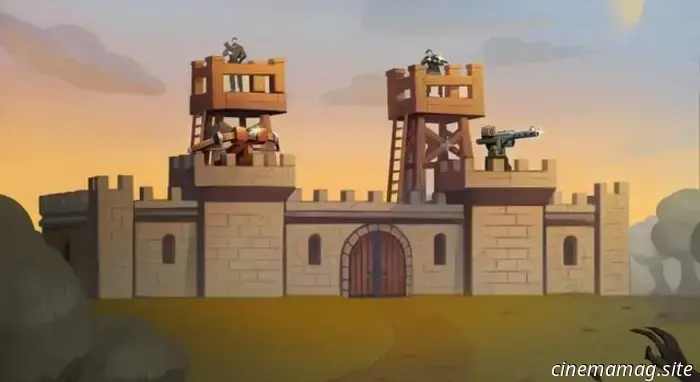 Zombie base-builder Final Outpost: Definitive Edition has received its release date and a new trailer.
Exabyte Games has revealed that their forthcoming zombie strategy base-builder, Final Outpost: Definitive Edition, will launch on May 22nd. Along with this announcement, a new trailer has been released, highlighting the challenges players will encounter in their fight for survival. The original game has garnered over 1,000,000 downloads since its launch in 2020, and this […]
Zombie base-builder Final Outpost: Definitive Edition has received its release date and a new trailer.
Exabyte Games has revealed that their forthcoming zombie strategy base-builder, Final Outpost: Definitive Edition, will launch on May 22nd. Along with this announcement, a new trailer has been released, highlighting the challenges players will encounter in their fight for survival. The original game has garnered over 1,000,000 downloads since its launch in 2020, and this […]
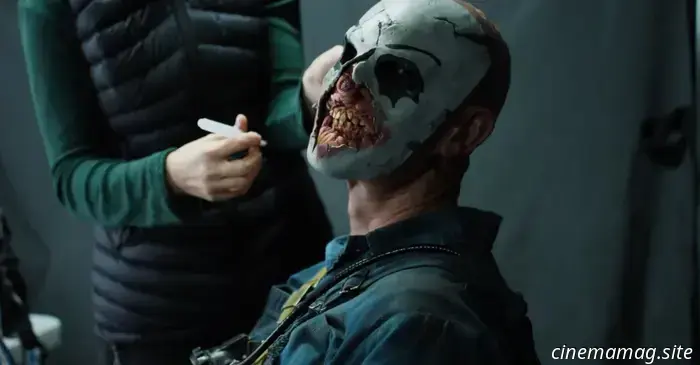 The featurette for Until Dawn delves into the practical effects used in the adaptation of the horror video game.
In anticipation of its theatrical debut this Friday, Sony Pictures has released a new featurette for the forthcoming video game adaptation Until Dawn. This behind-the-scenes look features director David F. Sandberg and writer Gary Dauberman talking about the development of its practical effects. You can watch it below... “One year after her [...]
The featurette for Until Dawn delves into the practical effects used in the adaptation of the horror video game.
In anticipation of its theatrical debut this Friday, Sony Pictures has released a new featurette for the forthcoming video game adaptation Until Dawn. This behind-the-scenes look features director David F. Sandberg and writer Gary Dauberman talking about the development of its practical effects. You can watch it below... “One year after her [...]
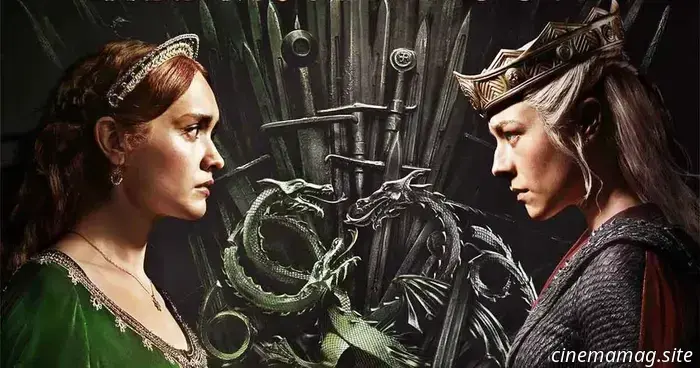 House of the Dragon adds new cast members for its third season.
As production for the third season of House of the Dragon gets underway, HBO has revealed additional casting updates as the Targaryen civil war, commonly referred to as the Dance of the Dragons, fully ignites. Joining the cast this season are Tom Cullen (The Gold), Joplin Sibtain (Andor), and Barry Sloane (The Bay). They will join other newcomers, including Tommy […]
House of the Dragon adds new cast members for its third season.
As production for the third season of House of the Dragon gets underway, HBO has revealed additional casting updates as the Targaryen civil war, commonly referred to as the Dance of the Dragons, fully ignites. Joining the cast this season are Tom Cullen (The Gold), Joplin Sibtain (Andor), and Barry Sloane (The Bay). They will join other newcomers, including Tommy […]
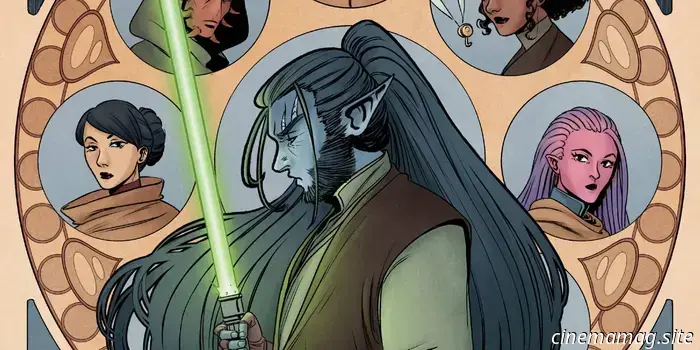 Star Wars: The High Republic Adventures #17 - Comic Book Sneak Peek
Dark Horse Comics will release Star Wars: The High Republic Adventures #17 next week, and you can take a look at the official preview of the second-to-last installment in the series below… As the Battle of Eriadu rages on, the leader of the resistance, Jedi Knight Farzala Tarabal, confronts a daunting choice: jeopardize the lives of his friends, […]
Star Wars: The High Republic Adventures #17 - Comic Book Sneak Peek
Dark Horse Comics will release Star Wars: The High Republic Adventures #17 next week, and you can take a look at the official preview of the second-to-last installment in the series below… As the Battle of Eriadu rages on, the leader of the resistance, Jedi Knight Farzala Tarabal, confronts a daunting choice: jeopardize the lives of his friends, […]
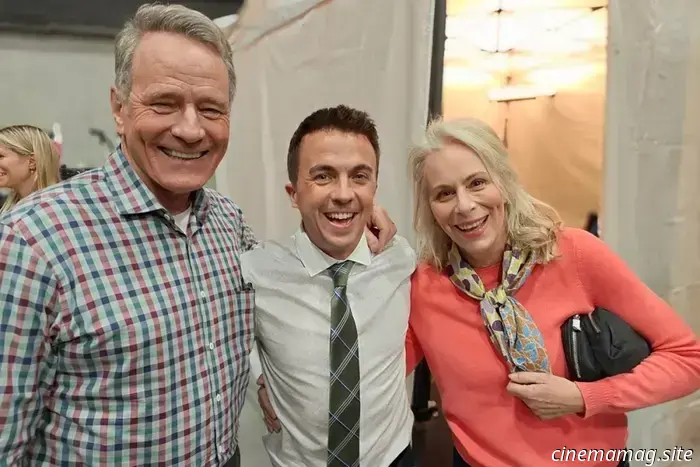 Frankie Muniz, Bryan Cranston, and Jane Kaczmarek come together once again for a revival on the set of Malcolm in the Middle.
We'll observe how life's unfairness may still affect Malcolm, as Frankie Muniz has released the first set photo from the revival of *Malcolm in the Middle*, capturing his reunion with his television parents, Bryan Cranston and Jane Kaczmarek. Muniz portrayed Malcolm during the original seven-season run of *Malcolm in the Middle*, chronicling the experiences of a young gifted genius in a […]
Frankie Muniz, Bryan Cranston, and Jane Kaczmarek come together once again for a revival on the set of Malcolm in the Middle.
We'll observe how life's unfairness may still affect Malcolm, as Frankie Muniz has released the first set photo from the revival of *Malcolm in the Middle*, capturing his reunion with his television parents, Bryan Cranston and Jane Kaczmarek. Muniz portrayed Malcolm during the original seven-season run of *Malcolm in the Middle*, chronicling the experiences of a young gifted genius in a […]
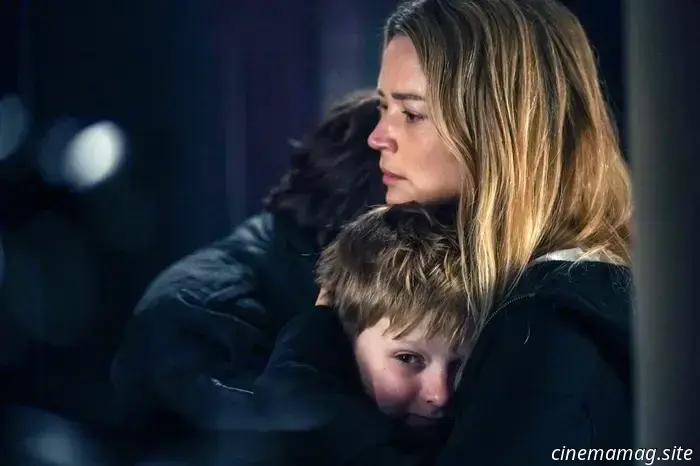 Exclusive: Virginie Efira Aims to Rescue Her Family in U.S. Trailer for All to Play For
Before Virginie Efira reunites with her Other People's Children director Rebecca Zlotowski for the Cannes-bound film Vie privée, one of her earlier festival selections is making its way to the U.S. Delphine Deloget’s drama All to Play For, which debuted at the 2023 Cannes Festival in Un Certain Regard, features Efira in the role of a bohemian.
Exclusive: Virginie Efira Aims to Rescue Her Family in U.S. Trailer for All to Play For
Before Virginie Efira reunites with her Other People's Children director Rebecca Zlotowski for the Cannes-bound film Vie privée, one of her earlier festival selections is making its way to the U.S. Delphine Deloget’s drama All to Play For, which debuted at the 2023 Cannes Festival in Un Certain Regard, features Efira in the role of a bohemian.
“Nobody Can See It In Georgia”: Dea Kulumbegashvili, director of April, discusses state suppression and the support from Luca Guadagnino.
Note: This review was first published as part of our coverage for the 2024 Filmfest Hamburg. "April" is set to hit theaters on April 25. Georgian writer-director Dea Kulumbegashvili has achieved remarkable recognition in the film industry with just two feature films. Her stunning debut, "Beginning," was awarded a Cannes label during the festival's canceled edition due to the pandemic.
